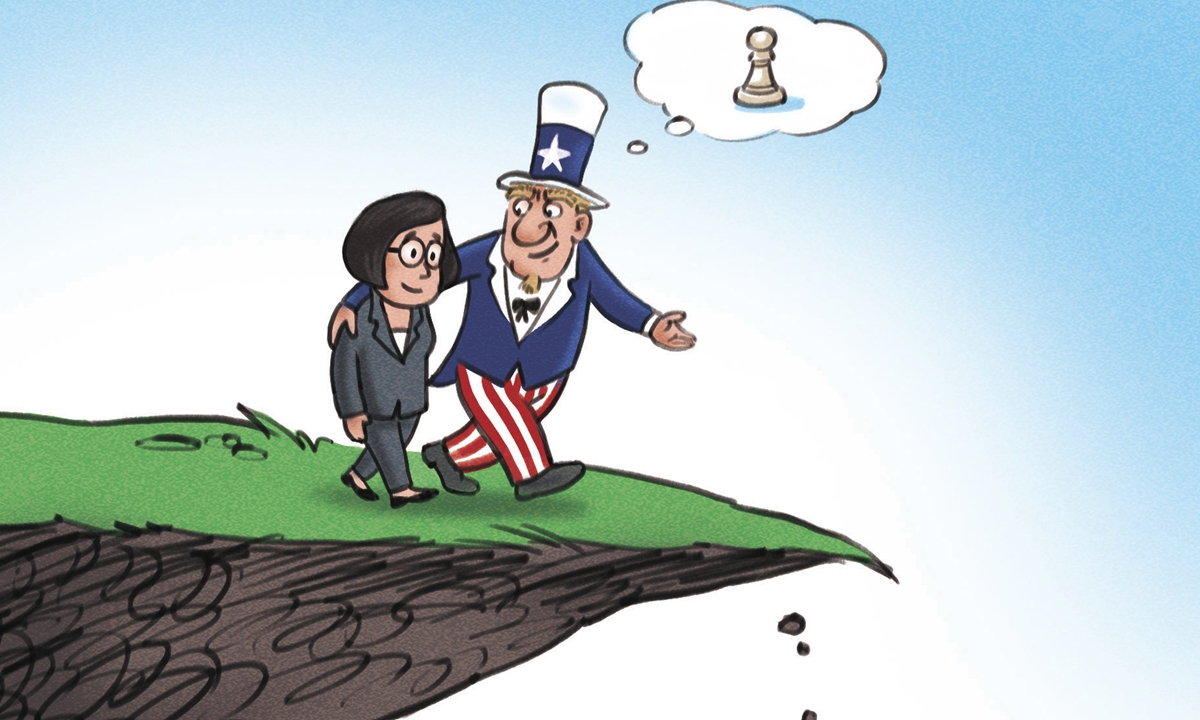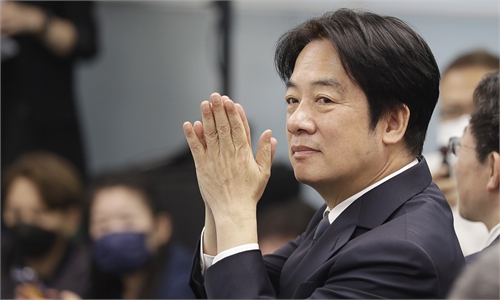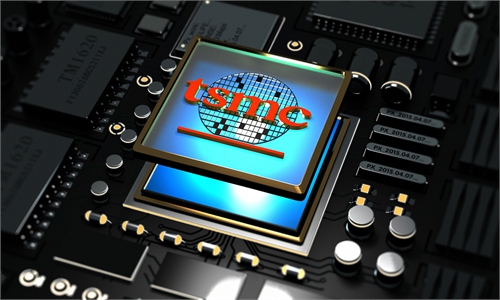
Illustration: Liu Rui/GT
US President Joe Biden on Monday signed into law the US-Taiwan Initiative on 21st-Century Trade First Agreement Implementation Act, according to a statement posted on the White House website.The development came after the US signed in June the first agreement negotiated under the 21st Century trade initiative amid opposition from the Chinese mainland.
The Chinese Foreign Ministry has repeatedly emphasized that China strongly opposes official interactions of any form between China's Taiwan region and countries that have diplomatic relations with China. That includes negotiating or signing any agreement that implies sovereignty and has an official nature.
Therefore, on the surface, the so-called 21st Century trade initiative is about economic and trade cooperation, but it gravely violates the one-China principle and the three China-US joint communiqués, and contravenes the US' commitment of maintaining only unofficial relations with Taiwan. The wrong signals it sends to Taiwan secessionist forces will undermine peace and stability across the Taiwan Straits.
While the US claims to pursue deeper trade ties with the island of Taiwan through the so-called 21st Century trade initiative, anyone with a discerning eye can see that it is aiming to pursue the China containment strategy by playing the "Taiwan card" and hollowing out the one-China principle under the guise of trade cooperation. Of course, the US' calculation would not have been realized so easily without the ruling Democratic Progressive Party (DPP) of the Taiwan island currying favor, as it constantly sells out and betrays Taiwan's interests in exchange for US support for the secessionist forces' political interests.
These moves to collude with external forces and sell out the interests of the island's people have brought Taiwan step by step into the mire of geopolitical struggle, which will inevitably lead to more twists and turns for the island's development.
The fact that the agreement signed this time doesn't include any market-access provisions is enough to lay bare the nature of the imbalanced game in the US-Taiwan trade initiative, which is not hard to anticipate. Since the US has adhered to its "America first" principle even in the face of its allies, how could it make any substantial concessions to the DPP authorities, who are begging for its support? So whether it is the negotiation process or content in the agreement, the US always has the biggest say.
Apparently, none of the negotiation and agreement provisions matter to the DPP authorities, because political considerations to gain US support for secessionism are sufficient to prompt the DPP authorities to sell out the interests of Taiwan to cater to US requirements and extortion.
As seen in the past examples of imports of US ractopamine-fed pork and TSMC being turned into "USSMC," there is no bottom line for the DPP authorities when it comes to selling out Taiwan for political self-interests.
It is because the DPP authorities lack the bargaining power and motives to bargain with the US that Taiwan's economic autonomy, economic ties with the mainland, and economic potential will be seriously eroded. For instance, Taiwan's competitive semiconductor sector will be rearranged and adjusted based on US needs, undermining its overall competitiveness.
Therefore, the so-called 21st Century trade initiative is not a blessing for Taiwan, but a strategic move by the US to put on pressure on the mainland. Some politicians and interest groups in Taiwan may benefit from the US-led economic arrangement, but Taiwan's economic autonomy, industrial system, and the healthy and orderly trade pattern across the Straits may risk being sabotaged. Taiwan society needs to wake up and save itself from the destructive consequences the Taiwan secessionist forces will cause to the island's economic future.



